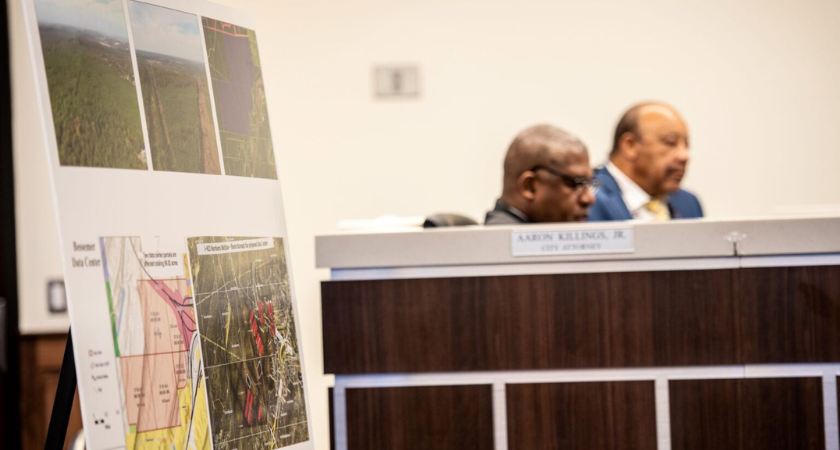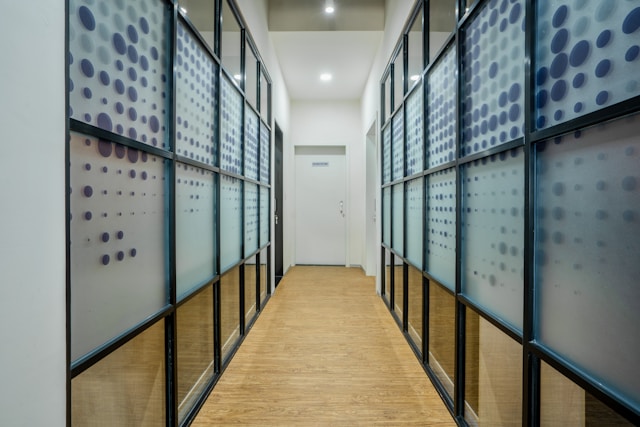
The Bessemer City Council has voted to allow a massive $14 billion data center project to move forward, despite vocal pushback from residents and environmental organizations who warned of potential strain on local water supplies, pollution impacts, and long-term health consequences.

In a 5-2 vote on Tuesday, council officials approved the rezoning of 670 acres from residential to light industrial, clearing the final regulatory step needed for construction to begin. Council member Carla Jackson defended the decision, stating that officials did not proceed blindly. “We have all been listening,” she said before the vote. “We heard your concerns, and we have waited. Unbeknownst to you, we have done the research.”
Representatives for Logistics Land Investment LLC, the Atlanta-based developer, assured council members that environmental studies found no sensitive risks. Project representative Brad Kaaber outlined extensive technical assessments, saying, “In order to get to this point, we had to go through vast amounts of due diligence.”
He added that research included endangered species reviews, traffic studies, and wetland and archaeological assessments. “There are no endangered species on the site. There are no archeological findings on this site,” Kaaber told the council, emphasizing that building visibility would be reduced due to natural ridges and property setbacks.
Kaaber also argued that no streams or waterways would be impacted. However, internal correspondence revealed the facility could require up to two million gallons of water daily to cool its equipment—raising alarm among environmental advocates and nearby residents.
Concerns intensified after the Warrior River Water Authority received a memo requesting massive daily water allocations. For local residents already served by a small utility, this request raised questions of affordability and sustainability. Ryan Anderson of the Southern Environmental Law Center warned that customers may be left footing the bill. “They requested two million gallons a day from a fairly rural, under-resourced, drinking water utility, and we have questions about whether that utility can upgrade its system without any cost to its customers in order to serve the data center,” he said.
Anderson added there is uncertainty over water sources themselves: “And there is another really basic question of whether they are going to use surface water or ground water.”

Nearby resident Mary Rosenboom expressed fear of depleted groundwater supplies, saying: “I am very concerned about the aquifer because they will dewater the site.”
The debate mirrors growing national scrutiny as communities grapple with the hidden costs of large-scale data centers, particularly those serving explosive growth in artificial intelligence. Residents in Bessemer voiced similar worries, including constant noise from buildings and the surge in electricity consumption. Some criticized reliance on fossil-fuel power plants that support the facility.
Environmental advocate Julianne Tharp warned of health risks associated with emissions, telling council members: “It will cause carbon dioxide and methane emissions, which we already know are warming the atmosphere and aggravating different illnesses.” Tharp expressed further concern over increased respiratory disorders, saying she fears more cases of asthma and related health problems.
Although objections were strong, some residents and leaders urged the council to seize what they see as a long-term economic opportunity. Bessemer City Schools Superintendent Michael Turner insisted that the project could transform the city’s finances, telling council members: “We have a wonderful opportunity here today, you do, to make something happen, in this state.”
Economic projections from the Birmingham Business Alliance estimate that the project could bring $132 million in tax and fee revenues to the city and $538 million in school system benefits, including franchise fees, sales taxes, property taxes, and building permits.
Originally reported by Ralph Chapoco in Alabama Reflector.